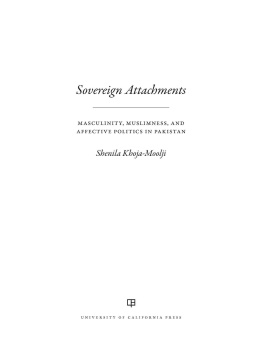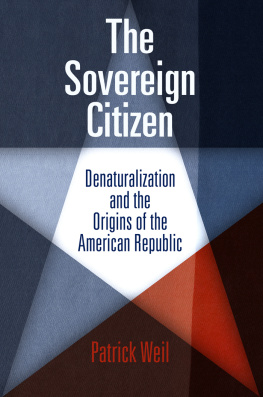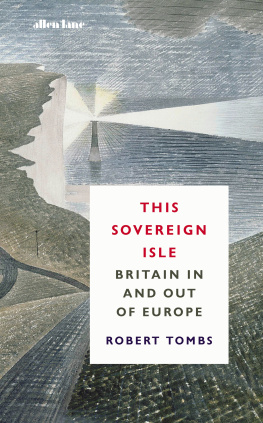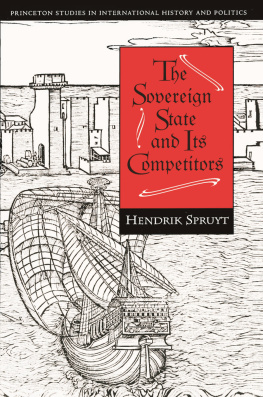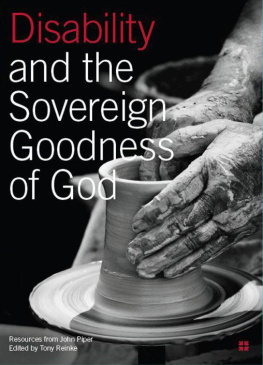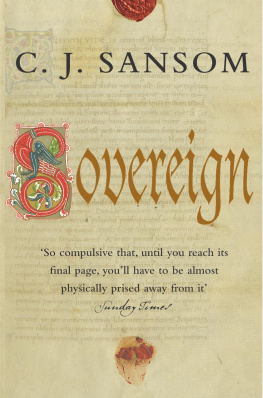Shenila Khoja-Moolji - Sovereign Attachments
Here you can read online Shenila Khoja-Moolji - Sovereign Attachments full text of the book (entire story) in english for free. Download pdf and epub, get meaning, cover and reviews about this ebook. year: 2021, publisher: University of California Press, genre: Politics. Description of the work, (preface) as well as reviews are available. Best literature library LitArk.com created for fans of good reading and offers a wide selection of genres:
Romance novel
Science fiction
Adventure
Detective
Science
History
Home and family
Prose
Art
Politics
Computer
Non-fiction
Religion
Business
Children
Humor
Choose a favorite category and find really read worthwhile books. Enjoy immersion in the world of imagination, feel the emotions of the characters or learn something new for yourself, make an fascinating discovery.
- Book:Sovereign Attachments
- Author:
- Publisher:University of California Press
- Genre:
- Year:2021
- Rating:5 / 5
- Favourites:Add to favourites
- Your mark:
- 100
- 1
- 2
- 3
- 4
- 5
Sovereign Attachments: summary, description and annotation
We offer to read an annotation, description, summary or preface (depends on what the author of the book "Sovereign Attachments" wrote himself). If you haven't found the necessary information about the book — write in the comments, we will try to find it.
Sovereign Attachments — read online for free the complete book (whole text) full work
Below is the text of the book, divided by pages. System saving the place of the last page read, allows you to conveniently read the book "Sovereign Attachments" online for free, without having to search again every time where you left off. Put a bookmark, and you can go to the page where you finished reading at any time.
Font size:
Interval:
Bookmark:
Shenila Khoja-Moolji

UNIVERSITY OF CALIFORNIA PRESS
University of California Press
Oakland, California
2021 by Shenila Khoja-Moolji
Library of Congress Cataloging-in-Publication Data
Names: Khoja-Moolji, Shenila, author.
Title: Sovereign attachments : masculinity, Muslimness, and affective politics in Pakistan / Shenila Khoja-Moolji.
Description: Oakland, California : University of California Press, [2021] | Includes bibliographical references and index.
Identifiers: LCCN 2020053084 (print) | LCCN 2020053085 (ebook) | ISBN 9780520336797 (hardback) | ISBN 9780520336803 (paperback) | ISBN 9780520974395 (ebook)
Subjects: LCSH : SovereigntyReligious aspectsIslam. | MasculinityPolitical aspects. | Identity politicsPakistan.| PakistanPolitics and government.
Classification: LCC JC 49 . K 527 2021 (print) | LCC JC 49 (ebook) | DDC 320.95491dc23
LC record available at https://lccn.loc.gov/2020053084
LC ebook record available at https://lccn.loc.gov/2020053085
Manufactured in the United States of America
25 24 23 22 21
10 9 8 7 6 5 4 3 2 1
Dedicated to my beloved MHI
This book emerges from my commitment to study how gender frames the life of a nation. While I take Pakistan as a case in point, and expressions of sovereignty as an object of inquiry, the intersection of masculinity and militarism, as well as the reduction of Islam to a biopolitical discourse, is palpable in other contexts too. Indeed, militarism has permeated the intimate and the distant, the public and the private, calcifying gender, sexual, ethnic, national, and religious identities. Hence, while I tell a particular story of Pakistan in this book, I hope that my readers will draw broader lessons about gender, politics, and militarism. In all, the book is written from a stance of hope: hope for more capacious forms of living.
I am grateful for Lila Abu-Lughod, Ali Asani, Hussein Rashid, Leila Ahmed, Nancy Lesko, and Janet Cooper Nelsons sustained mentorship. They have been my intellectual and ethical guides for decades now. No words can ever express my gratitude for, and to, them. I started this project as a postdoc at the University of Pennsylvania, with the encouragement of Rogers Smith and Nancy Hirschmann.
Many colleagues and friends offered advice during the course of writing this book. My writing group with Oyman Basaran, Shruti Devgan, and Jay Sosa has been extremely generative; I am thankful for their close readings and friendship. The encouragement from my colleagues at Bowdoin Collegein particular, Jen Scanlon, Marilyn Reizbaum, Elizabeth McCormack, Jill Smith, Doris Santoro, and Rachel Beanewas life-affirming. Elizabeth Pritchard offered much-appreciated advice on the intersection of religion and sovereignty.
Several colleagues read drafts at various stages of writing and provided invaluable feedbackLila Abu-Lughod, Mary Ann Chacko, Karishma Desai, Mariam Durrani, Barbara Elias, Shehnaz Haqqani, Celene Ibrahim, Ayesha Khurshid, Stephanie McCall, Natasha Merchant, Deepti Misri, Alyssa Niccolini, Laura Portwood-Stacer, Jyoti Puri, Maria Rashid, SherAli Tareen, Nicholas Tampio, and Asli ZenginI am grateful to them for their insights and critical comments.
I benefited from several awards from Bowdoin Colleges Committee on Faculty Research. Research assistance from my studentsRahul Prabhu, Elise Hocking, and Ziyanah Ladakwas extremely helpful. Many thanks also to my editor, Reed Malcolm, and other staff at the University of California Press, who supported this book with great enthusiasm. I thank the University of Oslo for giving me permission to access their library, as well the staff at Bowdoin College Library for securing documents from the Danish Institute for International Studies. Abdul Sayed from Lunds University was most helpful in sharing the latest issues of some of the magazines.
Finally, my deep gratitude to my family and friends, including my seva families, for their patience and support. In the end, and in the beginning, alhamdu li-llahi rabbil alamin.
ON DECEMBER 16, 2014, SIX GUNMEN opened fire at the Army Public School (APS) in Peshawar. The gunmen were affiliated with the Tehrik-e-Taliban Pakistan (hereafter, TTP or Taliban), an umbrella organization that connects militant groups based primarily in the northwestern region of Pakistan. They killed 132 children, and nine teachers and staff. The attack is widely seen by the public as one of the deadliest in the countrys recent history: Pakistans 9/11, as some have remarked.
Sharif invoked the kinship attachment between a father and his children to harness permission for state action. He went on to remove a range of constitutional protections, including reviving the death penalty, advancing an amendment to establish military courts, and reforming laws in order to provide provincial intelligence agencies access to communication networks supposedly used by terrorists. His decisions had ample support from across the countrys political spectrum. Most significantly, this moment allowed for an intensification of the armys assault operations against the Taliban in northwestern Pakistan.
The Taliban, for their part, insisted that they had attacked the school because the army was killing their kin. Muhammad Umar Khorasani, a Taliban spokesperson, explained, We selected the armys school for the attack because the government is targeting our families and females. We want them to feel the pain.
Both the state and the Taliban thus mobilized kinship feelings to legitimize their violence and cultivate consent for their actions. Since violence is
These negotiations often unfold in public culture. Robert Hariman describes public culture as the domain where collective public opinion about governance and social welfare is formed through the means of cultural productions such as musicals, magazines, social media, art, advertisements, and memoirs. I, therefore, make them the object of my analysis, and build on recent scholarship that reexamines classic assumptions of sovereignty by moving it out of the exclusive domain of geopolitics and legality, and into cultural and affect studies.
Focusing on the postcolonial nation of Pakistan, I engage in a close reading and interpretation of the print and online cultural productions of two key Crucially, the post-9/11 Pakistani state has witnessed a shattering of the fantasy of absolute sovereignty and territorial wholeness due to the unilateral drone strikes by the United States and the occupation of territory by the Taliban. We therefore observe enhanced efforts by the state to perform sovereignty.
By juxtaposing the state and the Taliban I do not intend to dissolve their differences; nor do I want to give the impression that I endorse the Talibans brutal violence, or, for that matter, state violence. The books aim is not to draw an equivalence between the state and the Taliban. Instead, it seeks to describe and interrogate the discourses and affectivities of each performance of sovereignty to argue that our examination of sovereignty must account for its cultural and affective dimensions. It was Raymond Williams who pointed to the usefulness of juxtaposing hitherto separately considered activities for cultural analysis, as it may lead to the discovery of patterns and correspondences, as well as discontinuities.
My examination shows the entanglements and shared repertoire of these seemingly antagonistic entities. It unveils the complicated imbrication of sovereignty by highlighting how scripts of gender and Muslimness become the very means through which sovereignty is performatively iterated in Pakistan. Both the state and the Taliban recruit strangers into relationships of trust, protection, and fraternity by drawing on and reinforcing gendered hierarchies, kinship feelings, and normative understandings of Islam. Such relationships become the structure of feelings that permits the classic and everyday acts of sovereignty that we immediately recognize: violence and governance. Feminist scholars have long argued that constructions and What deserves scholarly attention is how these become the means through which the relationship of sovereignty is nurtured. Such an approach draws attention to affect and memory work, as well as the making of allied, counter- and ambivalent publics. It views political attachments as contingent and interacting with gender and religion, and also opens up the space for an exploration of political estrangements.
Font size:
Interval:
Bookmark:
Similar books «Sovereign Attachments»
Look at similar books to Sovereign Attachments. We have selected literature similar in name and meaning in the hope of providing readers with more options to find new, interesting, not yet read works.
Discussion, reviews of the book Sovereign Attachments and just readers' own opinions. Leave your comments, write what you think about the work, its meaning or the main characters. Specify what exactly you liked and what you didn't like, and why you think so.

